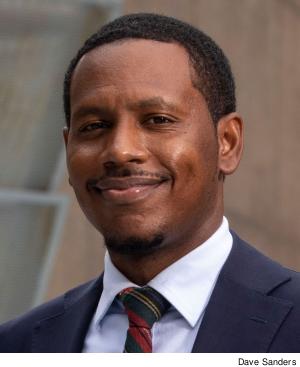CUNY has increased the number of mental health counselors it is making available for its students and getting closer to the standard suggested for universities worldwide. However, most of the new clinicians are just working part-time, and all of them were hired on a temporary basis.
 |
The increase has not resulted in better services either, according to Anna Compton, a Hunter College senior student who testified at a City Council Higher Education Committee hearing on September 20. She waited up to six weeks to see a school clinician, only to be referred to outside professionals, a step that takes eight additional weeks – if the external counselors take her insurance. Since the beginning of the pandemic, Compton’s therapy sessions have been constantly interrupted. “We are now in Fall 2021, and I am starting this process all over again,” she said.
CRUCIAL SERVICES
Mental health services are especially crucial now, as the pandemic has taken a heavy toll on college students. A CUNY Graduate School of Public Health report published last March found that 54% of the 274,000 students enrolled in CUNY expressed experiencing depression and anxiety. Those conditions, the survey found, were compounded by “disturbingly high levels of financial instability.”
“This is unacceptable,” said Remysell Salas, an adjunct lecturer in ethnic and race studies at the Borough of Manhattan Community College and campaign director of CUNY Rising Alliance, at the hearing. “The Covid-19 pandemic has been devastating to all students, who are trying to cope with that impact in their lives while pursuing their education,” he said. CUNY still has to fulfill its responsibility of providing students with the mental health tools they need to thrive, he added.
Gregory Kuhlman, director of the personal counseling program at Brooklyn College, agreed that CUNY has not been up to the challenge of providing sufficient mental health services, especially for students of the most disadvantaged groups.
“It is really important to have permanent, full-time counselors for continuity of care,” Kuhlman said. “If a student comes in on Monday seeking services because they’re suicidal, it’s not a great idea to have a counselor not available until the following Monday.”
College students are at an extremely vulnerable age, according to research cited by New York City Council Higher Education Chair Inez Barron during the hearing. From 18 to 25 years of age, a period known as “emerging adulthood,” mental health disorders are more likely to emerge. “With the exception of dementia, emerging adults experience more of every diagnosed mental health disorder than any other group,” she said.
Young adults are experiencing higher rates of anxiety and depression than any other social group, except for essential workers and caregivers, according to a Centers for Disease Control and Prevention(CDC) study. “This is compounded by the continued racism, white privilege and oppression that exists in our everyday lives,” Barron added.
Compton emphasized that campuses require more staff who are sensitive to students with disabilities, students of color and LGBTQ students. “We needed them before the pandemic and we certainly need them now,” she said.
Since last October, when the city council’s Higher Education Committee and Mental Health, Disabilities and Addictions Committee held their first meeting on mental health resources for students at CUNY, the administration announced a $5 million expansion of these kind of services with funds from the federal CARES Act. That allowed the University to increase its clinical staff and its capacity to provide online counseling.
By the official numbers, the investment impact seems remarkable. According to Denise Maybank, CUNY’s interim vice chancellor for student affairs and enrollment management, the University had a mental health staff-to-student ratio of 1:2,595 last year. With the CARES Act funds, CUNY added 54 part-time and nine full-time clinicians, which improved the mental health professionals-to-student ratio to 1:1,621.
The numbers, however, do not quite match. There are a total of 164 counselors, full and part-time, working at CUNY, according to Maybank. Considering CUNY’s student body (274,000), that’s a ratio of 1:1,876, which is better than last year’s ratio, but still far from the 1:1,500 ratio recommended by the International Accreditation of Counseling Services (IACS).
TIME IS LIMITED
The new hires are also temporary. The clinicians were hired with federal stimulus money and, as Maybank explained, the resources are “time-limited.” She estimates that the new mental health counselors would be funded for the next three years.
The union’s New Deal for CUNY legislation, in fact, calls for more long-term state funding for mental health counselors, in addition to funding free tuition and more full-time faculty.
“Beyond that,” Maybank said, “we’re going to need some additional resources or ways to make certain that those positions can be made permanent.”

